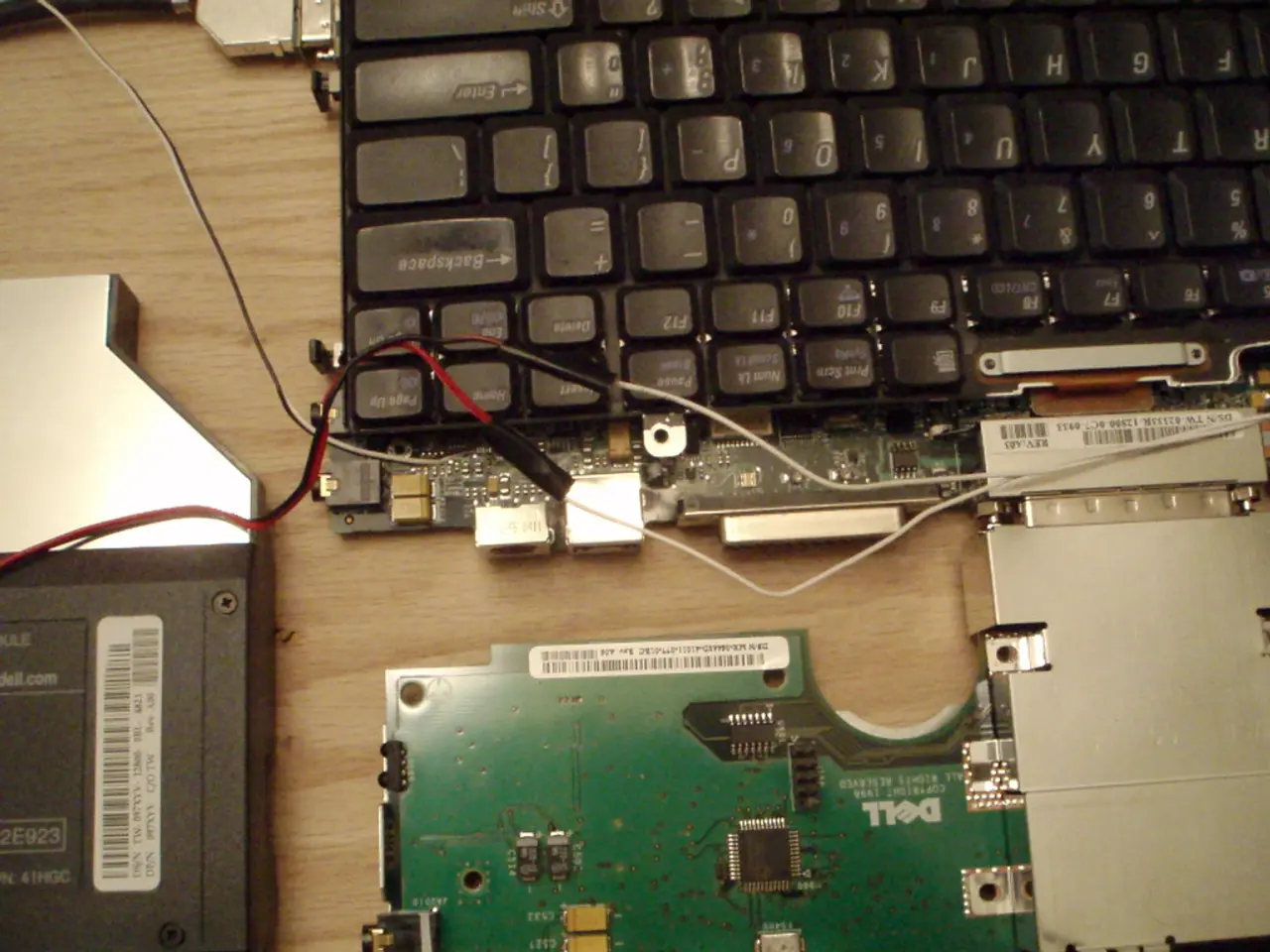Implant Allows Patient to Wirelessly Control Computers via Brain Connection
The medical world has taken a significant step forward with the successful implantation of Paradromics' Connexus brain-computer interface (BCI) device in a human patient. This groundbreaking development, carried out by a research team at the University of Michigan, marks a significant milestone for the company and the BCI industry as a whole.
The Connexus BCI device, designed for long-term implantation, offers several advantages over existing BCI systems. The device, which contains over 400 microelectrodes, is intended to provide users with greater freedom by being fully implantable. The device was safely removed within 20 minutes after the procedure and had recorded brain signals from the patient, demonstrating its safety and functionality.
Paradromics, partnering with the University of Michigan, is preparing to launch its first long-term clinical trial for the Connexus device by the end of 2025. This upcoming trial will focus on patients with severe paralysis, aiming to permanently implant the Connexus device and evaluate its ability to restore communication abilities over time.
The primary potential application targeted by Paradromics is restoring communication for people with severe motor impairments and paralysis. The Connexus BCI uses artificial intelligence to decode brain signals into actionable commands, which could allow nonverbal patients to communicate via technology like speech synthesizers or digital interfaces. This represents a significant advancement in assistive neurotechnology that could dramatically improve quality of life for those unable to speak or move.
The initial trials will focus on restoring communication through digital devices in individuals with speech impairment due to amyotrophic lateral sclerosis, stroke, or severe spinal cord injuries. However, the company is also exploring potential applications for the Connexus BCI device in mental health and chronic pain.
This recent milestone transitioned Paradromics into a clinical-stage company and strengthened its position as a leading BCI developer. The device's success in human trials reinforces the promise it holds for both safety and functionality, with broader medical applications revolving around neurorehabilitation and assistive communication technologies.
The Chinese Brain Implant Project, while not directly related to the Connexus BCI, is also making waves in the BCI industry and could potentially overtake Elon Musk's Neuralink. As these experimental BCI devices, while still in development, hold the potential to provide a new lease on life for many people, the race to develop and perfect these technologies is heating up.
In January, the U-M team published research showing a paralyzed man flying a virtual drone with thoughts using a high-performance BCI device, with greater accuracy than non-invasive systems. The University of Michigan research team is also working on a project to better understand how epilepsy affects the brain's signaling.
The Connexus BCI device is designed to send information to a transceiver implanted in the chest and allows users to operate compatible computer devices without physical attachments. As Paradromics plans to conduct clinical trials for the Connexus BCI device later this year, pending regulatory approval, the future of this innovative technology looks bright. The device's potential use as a high-performance BCI has researchers optimistic about its future applications and the positive impact it could have on the lives of many.
- The advancement in health and wellness sector is evident with the entry of Paradromics' Connexus brain-computer interface (BCI) device into the realm of long-term clinical trials for medical-conditions such as severe paralysis.
- The Connexus BCI device, a significant innovation in technology, is set to revolutionize the future of science, particularly neuroscience and health, by offering a potential solution for the restoration of communication abilities in patients with motor impairments.
- In addition to its primary application, Paradromics is also considering potential applications for the Connexus BCI device in mental health and chronic pain, signifying a broader reach for the technology in the health-and-wellness spectrum.
- The race to develop and perfect brain-computer interface (BCI) technologies, represented by Paradromics and the Chinese Brain Implant Project, is heating up, with each venture promising to provide a new lease on life for numerous individuals.




